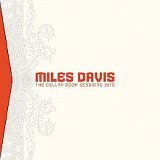| The Cellar Door Sessions 1970 | ||||
|---|---|---|---|---|
 | ||||
| Box set by | ||||
| Released | December 27, 2005 | |||
| Recorded | December 16–19, 1970 | |||
| Venue | The Cellar Door Georgetown, Washington, D.C. | |||
| Genre | ||||
| Length | 5:52:04 | |||
| Label | Columbia/Legacy | |||
| Producer | Teo Macero | |||
| Miles Davis live box set chronology | ||||
| ||||
| Miles Davis live chronology | ||||
| ||||
| Review scores | |
|---|---|
| Source | Rating |
| AllMusic | |
| Pitchfork | 9.4/10 [2] |
| Rolling Stone | |
| The Penguin Guide to Jazz Recordings | |
The Cellar Door Sessions 1970 is a boxed live album released in 2005. It compiles six of ten sets that were performed over four December nights in 1970 at the D. C. nightclub the Cellar Door. Despite similar formatting, it is not a part of the Miles Davis Series of box sets.
Contents
Significant portions of Davis' Live-Evil were edited and compiled from the music that appears on discs 5 and 6. The sections labelled "Improvisation" into "Inamorata" are most commonly known as "Funky Tonk," but were released on Live-Evil as "Inamorata and Narration by Conrad Roberts."
Live-Evil and this collection are the only official recordings of John McLaughlin's live performances with Miles Davis. [5]